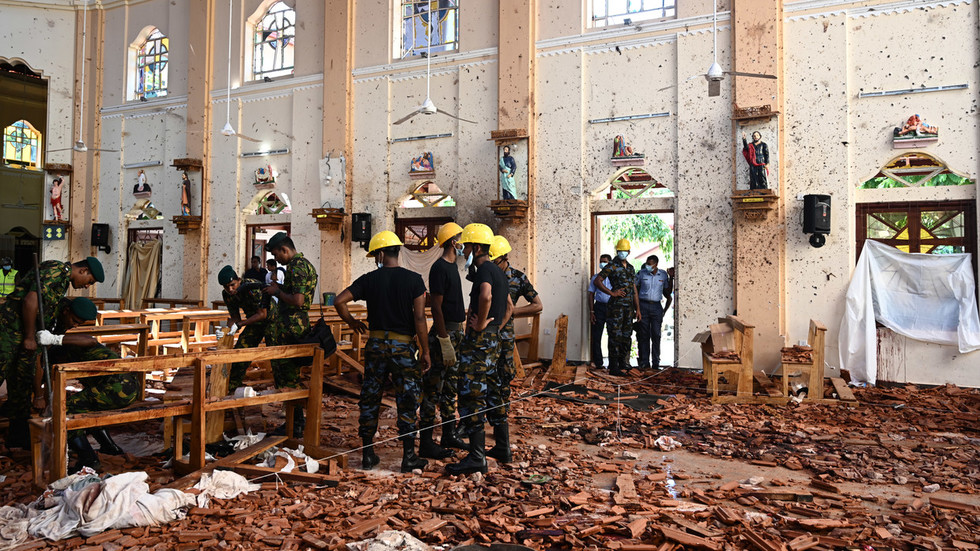Alwaght- Sri Lanka Authorities say seven suicide bombers took part in the attacks on churches and luxury hotels on Sunday that killed 290 people and wounded more than 500.
Two of the suicide bombers blew themselves up at the luxury Shangri-La Hotel on Colombo’s seafront, said Ariyananda Welianga, a senior official at the government’s forensic division. The others targeted three churches and two other hotels, Reuters reported.
A fourth hotel and a house in a suburb of the capital Colombo were also targeted, but it was not immediately clear how those attacks were carried out.
“Still the investigations are going on,” Welianga said.
There was no claim of responsibility for the Easter Sunday attacks, which mainly took place during church services or when hotel guests were sitting down for breakfast buffets.
“Guests who had come for breakfast were lying on the floor, blood all over,” an employee at Kingsbury Hotel, one of those targeted, told Reuters.
“We just picked up everyone, dead or alive and evacuated them.”
Cabinet spokesman Rajitha Senaratne said an international network was involved, but did not elaborate.
“We do not believe these attacks were carried out by a group of people who were confined to this country,” Senaratne said. “There was an international network without which these attacks could not have succeeded.”
The president, Maithripala Sirisena, said in a statement the country will seek foreign assistance to track the international links.
Prime Minister Ranil Wickremesinghe acknowledged on Sunday that the government had some prior information about possible attacks on churches involving a little-known local Islamist group.
A domestic intelligence report dated April 11 and seen by Reuters said a foreign intelligence agency had warned Sri Lankan authorities of possible attacks.
Four of the bombs went off at roughly the same time on Sunday, at 8.45 a.m., with two others coming within 20 minutes. The explosions at the fourth hotel and the house were in the afternoon.
Most of the dead and wounded were Sri Lankans although government officials said 32 foreigners were killed, including British, U.S., Turkish, Indian, Chinese, Danish, Dutch and Portuguese nationals.
Denmark’s richest man Anders Holch Povlsen and his wife lost three of their four children in the attacks, a spokesman for Povlsen’s fashion firm said.
The U.S. State Department said in a travel advisory “terrorist groups” were continuing to plot possible attacks in Sri Lanka and targets could include tourist spots, transport hubs, shopping malls, hotels, places of worship, airports and other public areas.
A security officer stands in front of St Anthony's shrine in Colombo, after bomb blasts ripped through churches and luxury hotels on Easter, in Sri Lanka April 22, 2019. REUTERS/Athit Perawongmetha
The government announced a curfew in Colombo from 8 p.m. until 4 a.m.
Separately, the president said a nationwide emergency will go into effect at midnight local time on Monday, granting police and the military extensive powers to detain and interrogate suspects without court orders.



























